Filter by
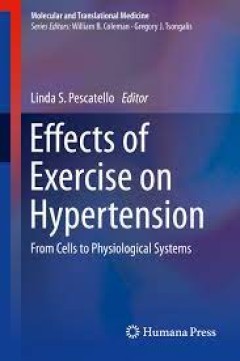
Effects of Exercise on Hypertension From Cells to Physiological Systems
As the first primer on the effects of exercise on human hypertension, Effects of Exercise on Hypertension: From Cells to Physiological Systems provides the state-of-the-art effects of exercise on the many possible mechanisms underlying essential hypertension in humans. The book contains chapters by distinguished experts on the effects of exercise on physiological systems known to be involved in…
- Edition
- -
- ISBN/ISSN
- 978-3-319-17076-3
- Collation
- -
- Series Title
- -
- Call Number
- -
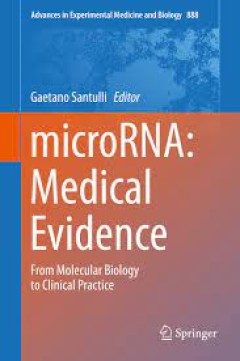
microRNA: Medical Evidence From Molecular Biology to Clinical Practice
This volume explores microRNA function in a wide array of human disorders, providing a clinical basis for precision medicine and personalized therapies using these molecules. The twenty-one chapters, all authored by internationally-renowned experts, open with an introduction contextualizing microRNA manipulation within today’s initiatives towards precision medicine. The following chapters exp…
- Edition
- -
- ISBN/ISSN
- 978-3-319-22671-2
- Collation
- -
- Series Title
- -
- Call Number
- -
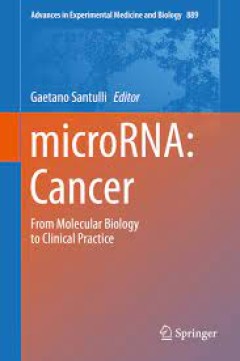
microRNA: Cancer From Molecular Biology to Clinical Practice
This volume thoroughly explores of the functional role of microRNAs in cancer. It not only expertly describes the molecular mechanisms underlying the malignant transformation process but also compiles cutting-edge research on microRNAs in several forms of cancer, including colorectal cancer, pancreatic cancer, leukemia/lymphoma, prostate cancer, lung cancer, ovarian cancer, and bone cancer. Dis…
- Edition
- -
- ISBN/ISSN
- 978-3-319-23730-5
- Collation
- -
- Series Title
- -
- Call Number
- -
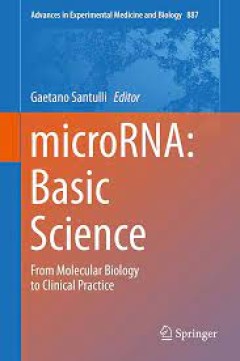
microRNA: Basic Science From Molecular Biology to Clinical Practice
This volume explores microRNA pathophysiology, focusing on basic concepts in molecular and cellular biology. Chapters contributed by leading scientists examine recently discovered pathways in several processes, including aging, diabetes, cardiovascular disease, hematopoiesis, and mitochondrial fitness. The authors contextualize microRNAs within epigenetics and micropeptidomics, angiongenesis an…
- Edition
- -
- ISBN/ISSN
- 978-3-319-22380-3
- Collation
- -
- Series Title
- -
- Call Number
- -
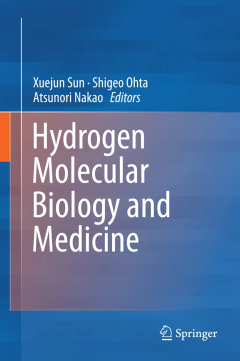
Hydrogen Molecular Biology and Medicine
This book provides a clearly structured introduction to hydrogen biology and medicine. Hydrogen is the one of the most abundant elements in the universe and has the simplest structure. In 2007, Japanese researchers found that the selective oxidation of hydrogen has a therapeutic effect on various diseases and injuries, sparking widespread interest in the biomedical field. In recent years, hundr…
- Edition
- -
- ISBN/ISSN
- 978-94-017-9690-3
- Collation
- IX, 117
- Series Title
- -
- Call Number
- 610.28 HYD
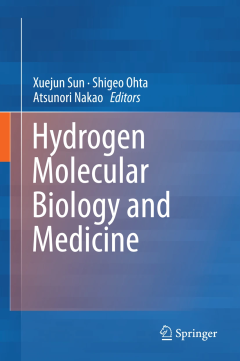
Hydrogen Molecular Biology and Medicine
This book provides a clearly structured introduction to hydrogen biology and medicine. Hydrogen is the one of the most abundant elements in the universe and has the simplest structure. In 2007, Japanese researchers found that the selective oxidation of hydrogen has a therapeutic effect on various diseases and injuries, sparking widespread interest in the biomedical field. In recent years, hundr…
- Edition
- -
- ISBN/ISSN
- 978-94-017-9690-3
- Collation
- X, 117
- Series Title
- -
- Call Number
- 610.28 HYD

Amniotic Membrane: Origin, Characterization and Medical Applications
This book describes the human amniotic membrane from its origin, characterization and medical applications, summarizing all the latest developments and findings related to this tissue with contributions from some of the leading researchers in the field. The book addresses issues for its preservation, separation and identification of amniotic membrane-derived cells, as well as the potential ethi…
- Edition
- Ed. 1
- ISBN/ISSN
- 978-94-017-9975-1
- Collation
- IX, 254
- Series Title
- -
- Call Number
- 574.192 AMN a

Recombinant Enzymes - From Basic Science to Commercialization
This edited work presents studies that clarify the basics of producing recombinant enzymes that finally lead to commercialization. It enables researchers to see what is crucial to the commercialization process, from examining the cloning method, using analytical techniques such as calculating the total protein content and enzyme activity, through considering upstream and downstream processes, t…
- Edition
- -
- ISBN/ISSN
- 978-3-319-12397-4
- Collation
- -
- Series Title
- -
- Call Number
- 610.72
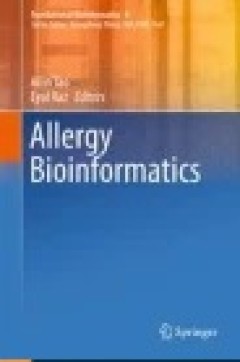
Allergy Bioinformatics
The book introduces the bioinformatics resources and tools available for the study of allergenicity. Allergy symptoms affect more than 25% of the population in industrialized countries. At the same time, biotechnology is a rapidly developing field, which often involves the introduction of potentially allergenic novel proteins into drugs or foods. It is essential to avoid transferring a gene tha…
- Edition
- Ed. 1
- ISBN/ISSN
- 978-94-017-7444-4
- Collation
- XII, 251
- Series Title
- Translational Bioinformatics
- Call Number
- 616.97 ALL a
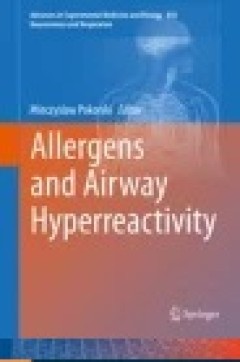
Allergens and Airway Hyperreactivity
Respiratory allergy is constantly encountered and is sharply on the rise, particularly in the two most vulnerable age-groups: young children and seniors. Allergy results in airway hyperactivity and increased airway resistance, with all inflammatory sequelae being ensued. The chapters show how respiratory allergy research is interconnected with other disciplines by discussing neurotransmitter, m…
- Edition
- Ed. 1
- ISBN/ISSN
- 978-3-319-10009-8
- Collation
- IX, 59
- Series Title
- Advances in Experimental Medicine and Biology
- Call Number
- 615.5 ALL a
 Computer Science, Information & General Works
Computer Science, Information & General Works  Philosophy & Psychology
Philosophy & Psychology  Religion
Religion  Social Sciences
Social Sciences  Language
Language  Pure Science
Pure Science  Applied Sciences
Applied Sciences  Art & Recreation
Art & Recreation  Literature
Literature  History & Geography
History & Geography